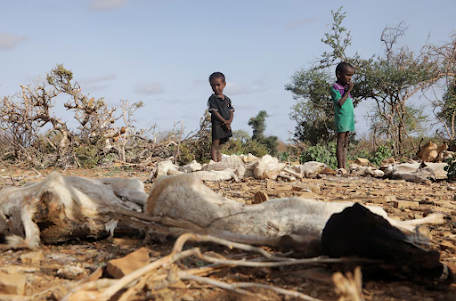The Global Impact of Climate Change on Key Crops
Climate change is posing significant challenges to global agriculture, impacting key crops essential for food security worldwide. Extreme weather events, including droughts, heatwaves, and wildfires, are disrupting agricultural production, leading to reduced yields and rising food prices. The vulnerability of crops such as coffee, olive oil, bananas, maize, and wheat to changing climate conditions highlights the urgent need for adaptation strategies to mitigate the risks posed by climate change.
In regions like the Middle East and North Africa, where coffee is a vital cash crop, rising temperatures and erratic rainfall patterns threaten to shrink suitable growing areas, leading to a potential coffee crisis. Similarly, the Mediterranean region, known for its olive oil production, has witnessed significant declines in yields due to extreme heat and drought, resulting in soaring prices and shifts towards alternative vegetable oils. Additionally, staple crops like bananas, maize, and wheat face challenges ranging from disease outbreaks exacerbated by warmer temperatures to decreased yields due to water scarcity, highlighting the urgent need for sustainable agricultural practices and crop diversification.
Despite the challenges posed by climate change, there is hope for resilience and adaptation in agricultural systems. Researchers are exploring innovative technologies and breeding techniques to develop climate-resilient crop varieties capable of withstanding extreme weather conditions. However, addressing the complex interplay of climate change, agriculture, and food security requires coordinated efforts at the global level, including policy interventions, investment in research and development, and support for smallholder farmers. Ultimately, tackling climate change's impact on agriculture requires collective action and a commitment to building more resilient and sustainable food systems for future generations.




Comments
Post a Comment